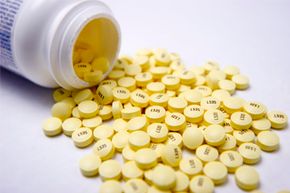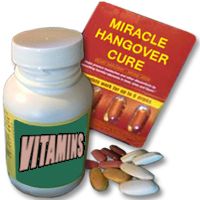When you fill a prescription at the pharmacy, your medicine comes with a lot of information. The important stuff is often printed on the bottle's label or included in the package insert. Over-the-counter (OTC) drugs, however, are a bit different. The product may sit on the shelf for weeks or months before you buy it. Details like the expiration date are often stamped discreetly on the drug's packaging, making it hard to find. Because of this, you might unknowingly buy an OTC medication that's close to expiring, or take drugs from your medicine cabinet that are already past their prime.
This might not be a problem if we always used and disposed of OTC meds in a timely fashion. The U.S. Food and Drug Administration (FDA) recommends that all expired drugs, whether prescription or OTC, be thrown out by their expiration dates [source: Lister]. Other experts, however, feel that properly stored medicines (those kept in cool, dry, dark areas) can still be safe and effective for a while longer. This is because drug makers tend to be very conservative when assigning a use-by date to a medication [source: Gardner].
Advertisement
A study examining the potency of expired drugs found that at least 90 percent of their active ingredients hadn't broken down after their use-by dates in most drugs studied. However, that shouldn't be a go-ahead to hang onto your OTC medicines past their prime. The same study found that aspirin, a common OTC drug, was likely to fall below 90 percent potency level [source: Gardner].
Whether it's okay to take expired OTCs depends largely on what medications you have and where you keep them. Store a drug properly according to its instructions (typically in a cool, dark cabinet), and you'll likely extend its life.
However, don't take chances with life-saving medications. A drug like aspirin, which is often used during heart attacks, can lose its potency over time. It should be replaced after it expires.
One more tip: Always check a medication's expiration date before you buy it. Often, stores stock the soonest-to-expire drugs in front. Dig toward the back to find the latest expiration date so that the medicines you buy will last longer.
Keep reading for lots more information on medication safety.
Advertisement

